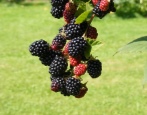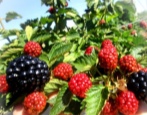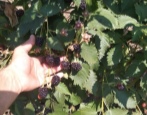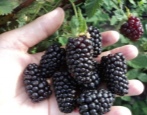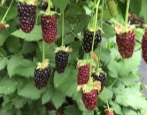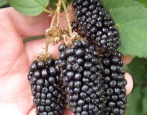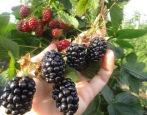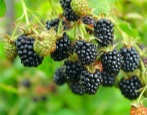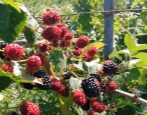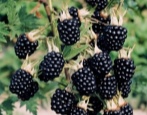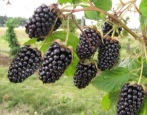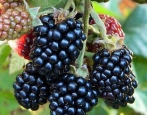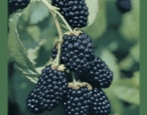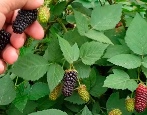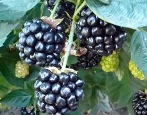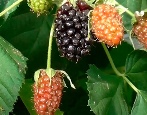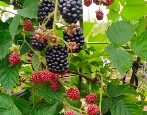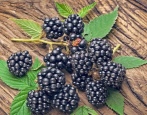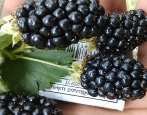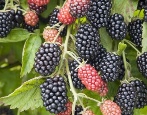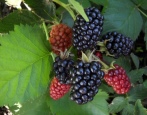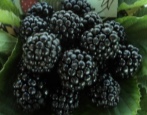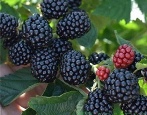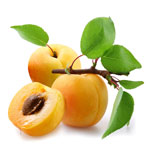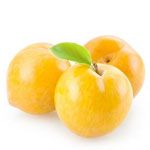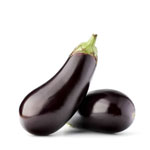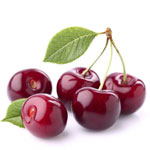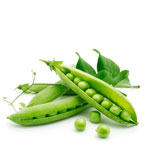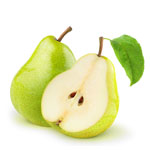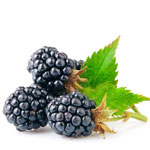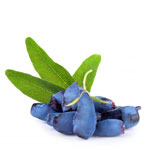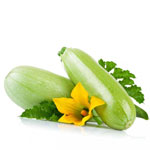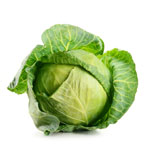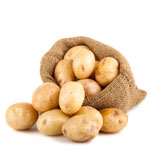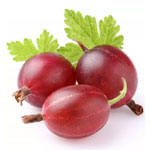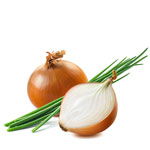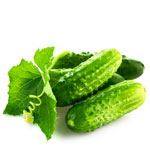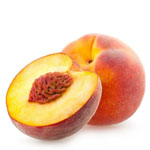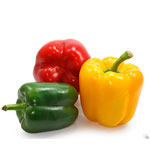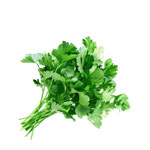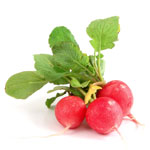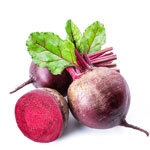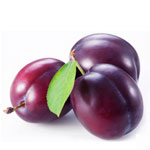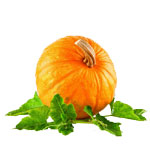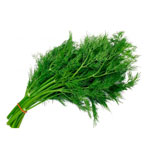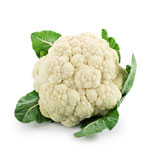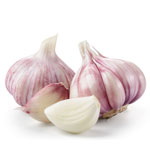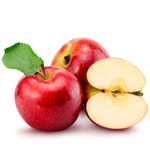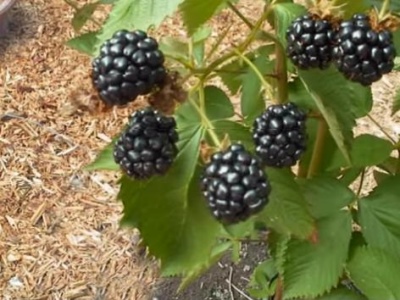
- Authors: University of Arkansas, USA
- Taste: sweet
- Scent : floral
- The presence of thorns: No
- Berry weight, g: 7
- Berry size: large
- Berry color: black
- Fruiting period: from late July to early August, lasts about 4 weeks
- Yield: 6 kg per bush
- Drop off location: shaded areas
Many have blackberries on their plots. She has some similarities with raspberries, but there are many differences. In blackberries, the fruits are polystyrene, not a berry. Let's consider the features of this interesting culture using the example of the Arapakho variety.
Breeding history
The University of Arkansas USA in 1993 became the breeding ground for the blackberry Arapaho, the Latin name for Arapaho. The works of scientists were not in vain, the new variety has a lot of advantages and managed to prove itself from the best side.
Description of the variety
The thornless Arapaho variety was one of the first kumanik bushes with such qualities. The bush consists of erect shoots that grow up to 2 meters. At the base, the thickness of the branches is 3 cm. The leaves are five-lamellar at the edges toothed, bright green.
Ripening terms
The fruits of the Arapaho variety ripen in medium terms. Harvesting begins at the end of July and lasts 1 month. Closer to the south, the fruits ripen in early July.
Growing regions
Blackberry Arapaho is adapted to growing in various climatic conditions. Distributed in the center of Ukraine, Moscow region. It grows in the southern regions and central part of Russia.
Yield
The high-yielding variety Arapakho is capable of producing up to 6 kg of fruit per bush. Under unfavorable climatic conditions, the yield decreases.
Berries and their taste
Arapaho fruits are large, black in color with a shiny tint, barrel-shaped. The weight of one berry is about 7 grams, with a diameter of 1.92 cm. The taste of blackberries is sweet and delicate with a floral aroma. The seeds are soft and not palpable when eaten. The consistency of the pulp is dense, therefore transportability is possible without damaging the fruit.
Growing features
This variety of blackberry shrubs requires wooden supports or trellis. She prefers sandy loam soil and fertilizer from humus and wood ash.
Site selection and soil preparation
The place for planting crops is chosen sunny, partial shade. Excessive solar activity can provoke leaf and fruit burns, especially in the southern regions. The best option is to plant along fences with a 1-meter indent. The fence provides protection from direct sunlight and cold winds.
Landing
Usually, Arapaho saplings are planted in spring at a temperature of + 15 ° C. It can be planted in the fall, but it must be borne in mind that the shrub must take root. Therefore, the procedure is carried out at least a month before the onset of cold weather.
The planting material should have 4 roots up to 10 cm and a basal bud.
Bushes are planted with an interval of 1 meter. The distance between the rows is 2.5-3 meters.
The holes are dug out equally in width and depth - 40x40 cm.
Fertilizer from potassium, humus and superphosphate is applied to the bottom.
A seedling is planted, watered and mulched to retain moisture.
Pruning
After planting, in the first year, all inflorescences are removed for better root development. Trimming the tops up to 1.5-2 meters is done in early spring after 2-3 years. Dry, broken branches are removed to the level of a living bud. The same actions can be done in late autumn.
At the beginning of the summer season, you need to pinch the tops and remove excess lateral shoots in the aisles. Young shoots are normalized from 5 to 10 pcs. per bush, depending on the strength of growth and the condition of the plant. At the end of the season, after the end of fruiting, all fruiting branches are cut at the root, leaving a small stump.
Watering and feeding
Blackberry Arapaho is rarely watered:
first, during planting, until the plant takes root for 1.5 months and make sure that the soil is constantly wet;
the blackberry Arapakho is drought-resistant, and additional watering is needed only in drought;
in the south, watered once every week;
the ground around the shrub is mulched with a layer of up to 10 cm.
Periodically, after 2 years, the Arapaho blackberry needs to be fed with an organic and nitrogen-mineral complex:
8 kg - humus;
100 g - superphosphate;
50 g - ammonium nitrate;
30 g - potash fertilizer.
Frost resistance and preparation for winter
Average frost resistance. The blackberry variety Arapaho can withstand up to -24 ° C, but it is still recommended to cover it. In the fall, when the temperature approaches zero, the branches are removed from the support and bent to the ground, securing them so that they do not rise. They are covered with spruce branches, agrofibre, lutrasil. Mulch with peat, foliage. In winter, you can add a layer of snow.
Diseases and pests
The Arapaho variety is resistant to diseases and pests. Sometimes it can be affected by a blackberry mite. It can be recognized by the appearance of ugly berries. The raspberry beetle makes holes in the leaves and berries, rot on the blackberries. Powdery mildew appears as a white bloom on leaves and fruits. For prophylaxis, before the beginning of flowering and after the plant, they are treated with Aktellik, Fufanon, Fitoverm.
Reproduction
The simplest and easiest option is to bend the upper part of the branch to the ground, fix it with a hairpin, and sprinkle it with earth. In the spring, the seedling is separated from the mother bush and planted separately.
Another way is to propagate with root layers. Leave strong vertical shoots on the bush until autumn. By the time the root system is formed, the plant can be separated and planted separately.
Review overview
Gardeners who grow the Arapaho variety are pleased with the simplicity of care. A thornless bush allows even small children to pick fruits and not be afraid of getting hurt. The delicious taste of juicy berries is a delight. The harvest is slightly less than the specified, but it is enough for everyone to eat and part of it to put up for sale.

